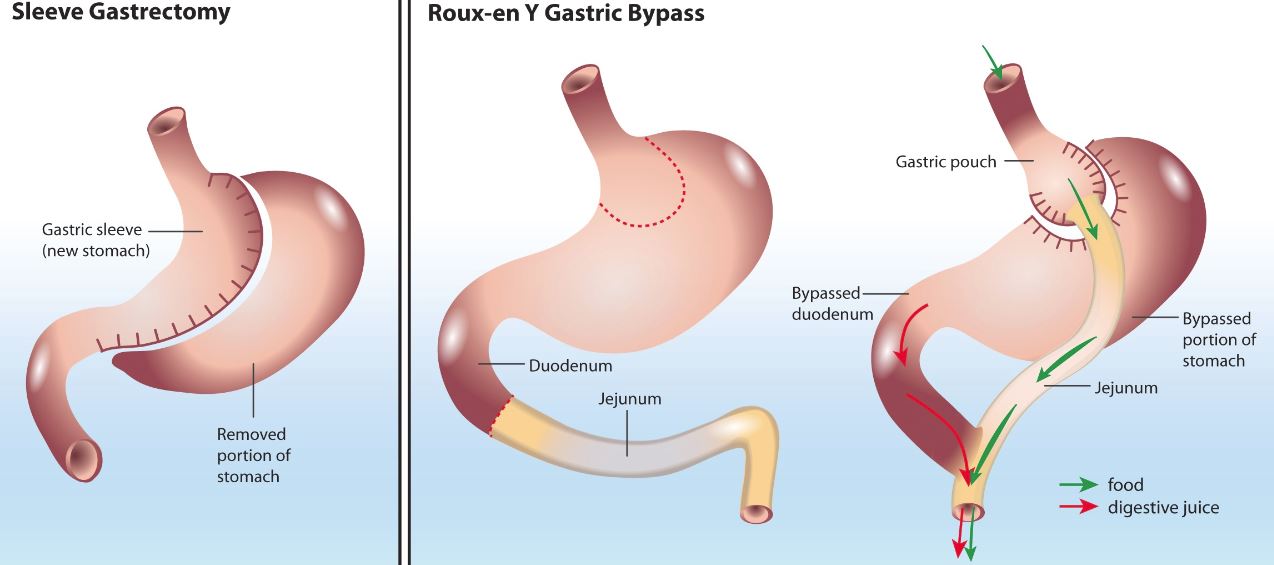What you need to know about Bariatric Surgery Consultation
Contents
- 1 What you need to know about Bariatric Surgery Consultation
- 2 What does the Procedure Involve?
- 3 How Long Should I Stay in the Area?
- 4 What’s the Recovery Time?
- 5 What About Aftercare?
- 6 What’s the Success Rate?
- 7 Are there Alternatives to Bariatric Surgery Consultation?
- 8 What Should You Expect Before and After the Procedure
Bariatric surgery is a group of surgeries that help you lose weight by altering your digestive system. Some of the most common types of bariatric surgery are Gastric Bypass and Gastric Sleeve. Bariatric surgery can be an option if you have severe obesity, and have not been able to lose significant weight by using other methods such as diet and exercise.
The first and most important step of bariatric surgery is consultation since it is essential to ensure that you are qualified and emotionally prepared for bariatric surgery. To ensure that you can safely undergo the procedure, your doctor has to collect comprehensive medical information and perform some tests during your consultation before the surgery is scheduled.

What does the Procedure Involve?
During your first consultation, your bariatric surgeon needs to develop an understanding of your individual needs and talk about your specific goal. Your surgeon will ask you about the efforts you have made to lose weight up until that point, as well as specific health issues you may have. These can include self-esteem issues, issues fitting into clothes, high cholesterol, high blood pressure, or pain in your joints. Here are a few things you can bring to help you share relevant information with your surgeon:
-
Medical history – your surgeon will thoroughly review your medical history, including your previous illnesses, surgeries, as well as any current or prior medication. You may also need to provide details about your overall health and your family’s history of diseases.
-
A weight loss journal or notes (if you have one) – if you record your weight loss efforts, such as special diet and exercises, you can bring them along to help you easily recall facts. If you do not have one, you can just share the information from what you remember.
This information is important as your surgeon need to determine whether or not you are a candidate for bariatric surgery.
After your surgeon finishes exploring your health, they will explain the different types of bariatric surgery. You must understand how each procedure is performed, how it helps you lose weight, the amount of weight typically lost after each procedure, the length of time it may take to reach your goal, the diet you will need to follow afterward, as well as the risks and benefits.
At the end of your consultation, your surgeon or medical team will recommend and help you schedule the required pre-surgery tests ad screens. These may include a physiological evaluation, drug screen, sleep apnea evaluation, cardiology testing, pulmonary testing, chest radiography, echocardiography, and electrocardiography. You may also be suggested to see a nutritionist and mental health professional.
How Long Should I Stay in the Area?
You can leave the hospital as soon as your bariatric surgery consultation finishes. You may also leave the area on the same day if you want. However, since the pre-surgery tests will take place soon after your consultation, it is recommended that you stay for at least a week for the whole process (your consultation and pre-surgery testing).
What’s the Recovery Time?
Unless the pre-surgery testing is done at the same time as your bariatric surgery consultation, there is no recovery time. You can immediately go back to your normal routine or holiday afterward.
What About Aftercare?
Your surgeon will likely give you a pre-surgery diet and exercise plan that you need to follow after your consultation. For many obese patients, losing some weight before surgery can lower the risks of surgery. Your willingness to stick with the diet and exercise before surgery usually indicates how well you will do after surgery. If you cannot stick with the plan, many surgeons may not proceed with bariatric surgery.
Make sure to attend all pre-surgery tests that your surgeon recommends after your consultation as you need to receive clearance from specialists, such as a pulmonologist and a cardiologist, to undergo bariatric surgery. In some cases, you may also need to attend a pre-operative education class.
What’s the Success Rate?
Bariatric surgery consultation is one of the most important parts of your bariatric surgery. It will ensure that your surgery has high success rates with minimal risks. While the process may seem long, it is specifically designed to protect your health during and after surgery, as well as to ensure that you have the best possible chance to lose weight and regain optimal health.
Bariatric surgery consultation has no risks, except if you undergo pre-surgery tests at the same time of your consultation.
Are there Alternatives to Bariatric Surgery Consultation?
There are no alternatives to bariatric surgery consultation. Again, consultation is a very crucial part of your bariatric surgery to ensure that you are the ideal candidate for the procedure. Therefore, if you wish to undergo the surgery, you have no other alternatives than to have an individual consultation with your chosen bariatric surgeon.
What Should You Expect Before and After the Procedure
Before bariatric surgery consultation, you may be considering a bariatric procedure but it may not clear yet if you are an ideal candidate for the procedure and if you can benefit from it. After your consultation, your surgeon should let you know if you are an ideal candidate for it, how you can benefit from the procedure, and what you should do to prepare for the actual surgery.
For an in-depth analysis of a Bariatric Surgery Consultation, watch this short video.
https://youtube.com/watch?v=mZIjElGzwC4
To check prices or to book a Bariatric Surgery Consultation, in Thailand or anywhere else in the world, head on over to MyMediTravel now!

